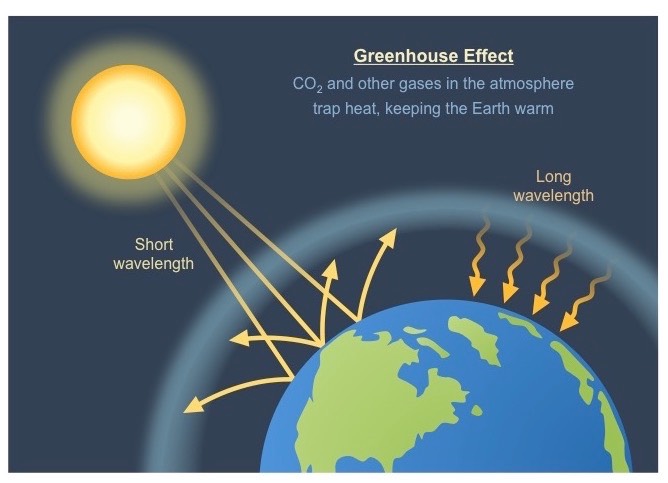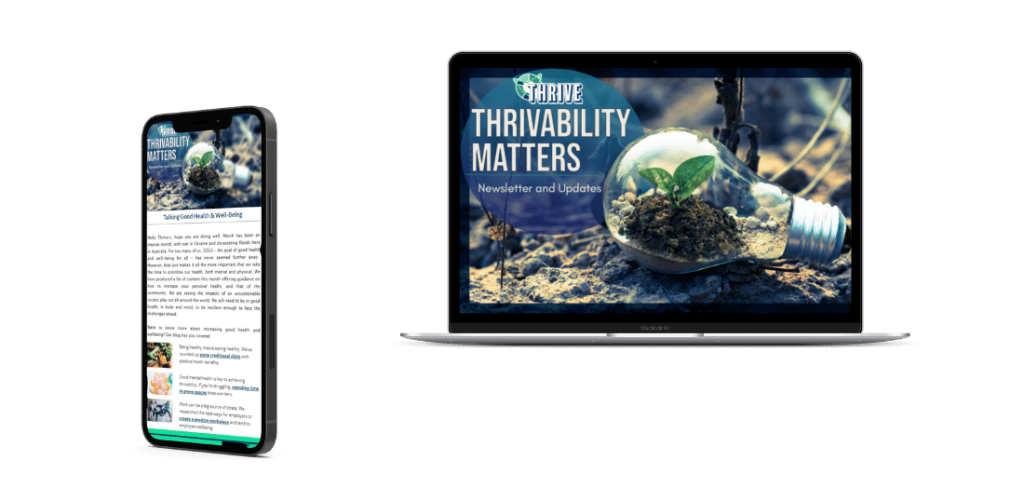Why does global warming occur?
Global warming is part of the larger climate change issue. It refers to the sustained increases in temperature, while climate change, on the other hand, is defined as the long-term changes in the averaged weather conditions (IPCC, 2018). The difference between global warming and climate change can be further explored in the article ‘Climate Change, Modeling, and Impacts‘ if you are interested in this topic.
Global warming occurs because excess greenhouse gases are released into the atmosphere, where the diagram below shows how the gases trap light reflecting off the Earth’s surface, causing temperature increases as more light is trapped inside the atmosphere. The article ‘Greenhouse Gases. Is it just a lot of hot air?’ explains which gases are most harmful and how they impact the Earth in more depth.

How is global warming impactful?
The Earth is affected by global warming because of how it changes the environment. Glacier melting, sea-level rise, and ocean temperature increases are the most common reflections of how global warming is harmful. Imagine you are sitting in a car: If the sun is out and the light hits the glass, which heats up the car. However, if it is a cloudy day, then less sunlight is coming into the car and it is cooler. Glaciers melt and ocean temperatures rise for the same reason. When this occurs, more light is trapped, the atmosphere heats up and, in turn, causes melting and temperatures to rise (Hancock, n.d). Sea levels then rise as glacial melting increases the amount of water in the ocean. These effects of global warming harm human populations. For example, higher sea levels are problematic, as the amount of usable land is reduced. This exacerbates human displacement, as millions of people seek refuge in safe, unaffected countries.
Why hasnt global warming been solved?
You might be asking, if we know the problem why haven’t we found a solution? It is a difficult problem to quickly reverse, because of the variety of effects global warming has on our lives. Alan Buis (2019) uses carbon dioxide to explain the problems we face. It has a lifespan of 300 to 1,000 years, meaning CO2 emitted today will stay in the atmosphere for centuries. Hence, we must not only stop emitting excess gases but also reverse the damage already done. When this is combined with other issues, such as poverty, hunger and human displacement, we begin to see why it is yet to be solved.
Possible interventions to global warming
The Paris Agreement aims to stop the average temperature from increasing to 2 °C above pre-industrial levels. The agreement also notes countries should try to restrict warming to 1.5 degrees. This is important as it is thought that low-lying countries may not be fit to inhabit if temperatures rise to 2 °C. This strategy does not reverse global warming, rather it stops further damage from occurring.
As a community, we can make more responsible choices to limit global warming, in which a swift change could be is eating more vegan meals, as meat production is one of the largest polluting industries. The article ‘Is Veganism more Sustainable for the Environment?’ outlines how the food industry plays a major role in the greenhouse effect.
Another responsible choice we can make is buying recyclable or plastic-free products. Although it may seem like a small change, our emissions would decrease a great deal if everyone were to reduce their food waste and household waste.
Visit the THRIVE blog for further information on climate change causes and different possible interventions.
References
Buis, A. (2019). The Atmosphere: Getting a Handle on Carbon Dioxide. NASA [online]. Available at: https://climate.nasa.gov/news/2915/the-atmosphere-getting-a-handle-on-carbon-dioxide/#:~:text=Once%20it’s%20added%20to%20the,timescale%20of%20many%20human%20lives.
IPCC (2018). Annex 1: Glossary. Available at: https://www.ipcc.ch/site/assets/uploads/sites/2/2019/06/SR15_AnnexI_Glossary.pdf.
Hancock, L. (n.d.). Why are glaciers and sea ice melting? WWF. Available at: https://www.worldwildlife.org/pages/why-are-glaciers-and-sea-ice-melting#:~:text=Why%20are%20glaciers%20melting%3F&text=Specifically%2C%20since%20the%20industrial%20revolution,sea%20and%20retreating%20on%20land.

